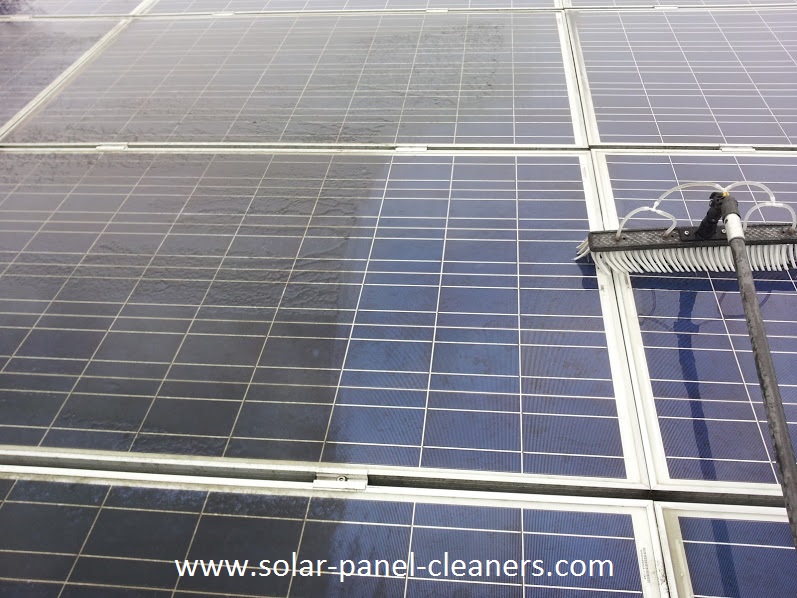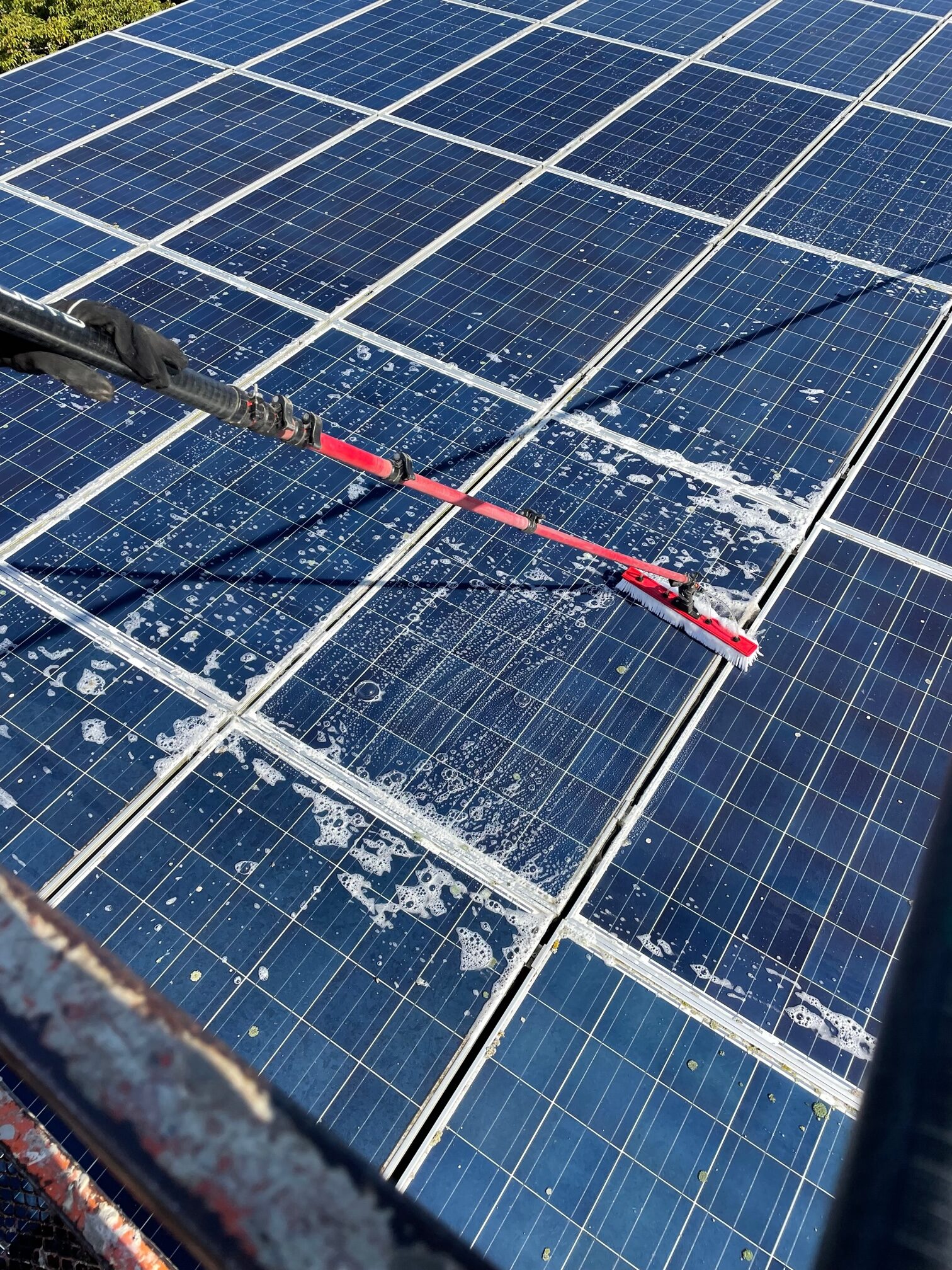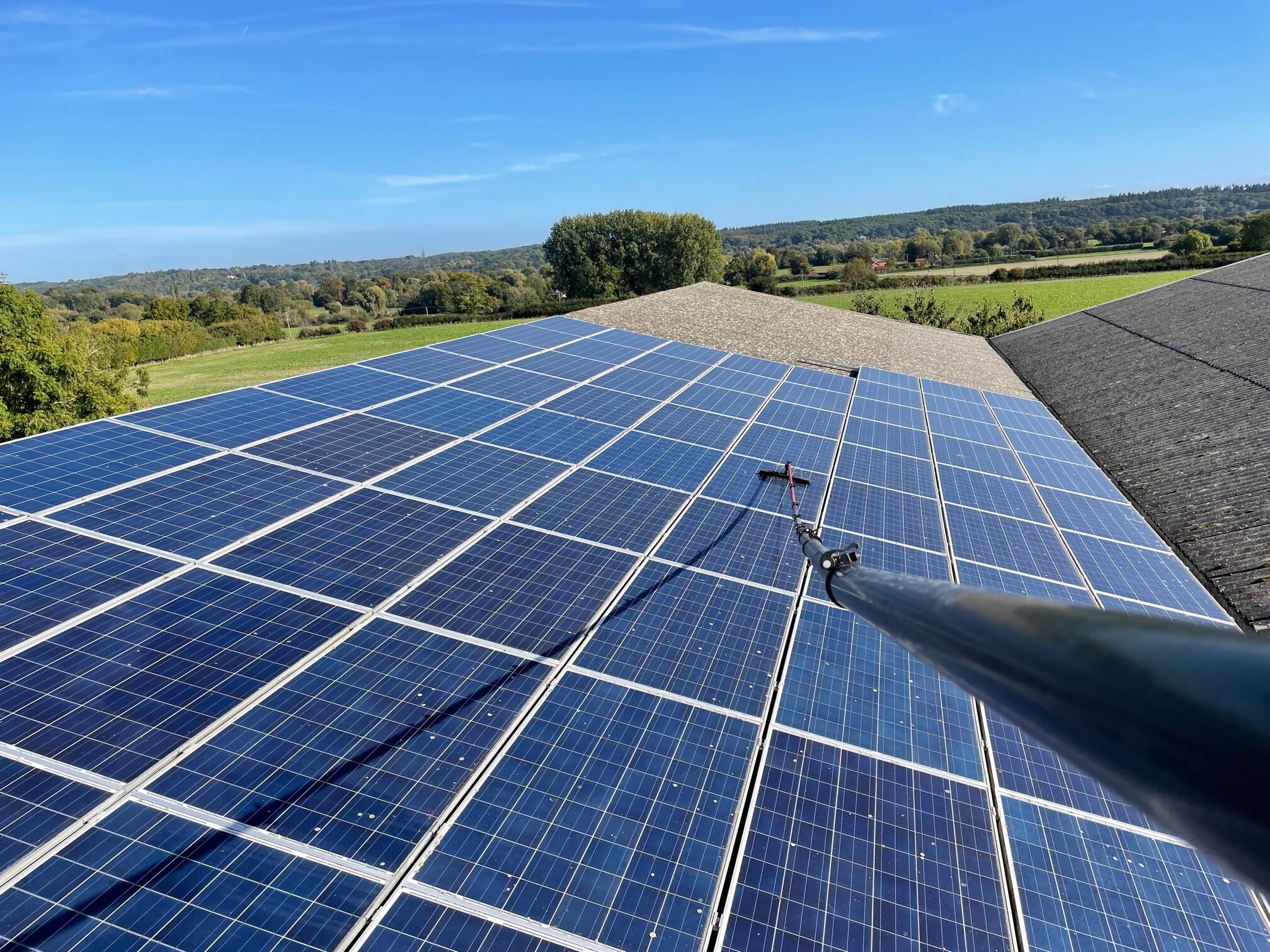“Why is solar panel cleaning important?” This question is being asked by more and more people as solar panels continue to be installed and solar panel cleaning companies are popping up everywhere who say solar panel cleaning is important.

The silicon solar panel was first patented in the 1940’s. They were used on space stations to power batteries during the 1950’s. But it wasn’t the 1970’s that they began to be used on a commercial scale. At this time, efficiency was monitored but not to the same extent as today. Solar cells did not last as long and were not as durable as today’s solar cells. Because today’s solar panels have a life span of about 25 years, they have become a sensible provider of clean electricity for the owner in the long term. Monitoring the output of solar panels has also become increasingly important.
What was quite literally space technology has now become available to many home and business owners. Because they have invested in solar panels, they want to maximise the return that their solar panels can give. In the UK, the Government provided brilliant financial incentives for people to invest in fitting solar panels to their roofs. They are called Feed-In Tariffs. People could see their money from their purchase back in just 11 years. After that, from year 11 to the end of the lifespan of their solar panels, they were in profit. Figures were banded about that at first glance looked brilliant, but were based on the solar panels working at 100% efficiency. This is why solar panel cleaning is so important.
Solar panels are exposed to the elements and naturally accrue grime, dust, bird droppings, salt deposits, traffic film, algae and other substances which will stick to the solar panels. Dirt that builds up on the solar panel blocks put a degree of the light and stops it hitting the solar cell. this then reduces the efficiency of the solar panel. Solar manufacturers realised this and worked to develop self-cleaning solar panels.
While there have been advances in this field, the technology is still flawed. So-called ‘self-cleaning coatings’ can be applied to the solar panels which either prevents dirt sticking to the solar panels, or if the dirt sticks, the rain then washes the dirt away. While this may work in the research lab, evidence shows that it does not work in the real world. That said, there are still research projects ongoing which hope to further the technology.
Sprinkler systems can also be fitted to help clean the solar panels. This are usually mounted at the highest point of the array and they then spray copious amounts of water on to the panels rinsing off a percentage of the dirt. However, these are usually linked up to a mains water supply and often leave behind deposits of their own on the solar panels such as lime and other substances. These again block out light from hitting the solar cells.
Experience the world over has shown that manual solar panel cleaning is important because it removes the build up of dirt in a much more efficient way than relying on rain to activate the self-cleaning coating and examples of sprinklers which wash away some dirt, but leave behind other substances.
Manual solar panel cleaning usually uses ultra-pure water which is pumped through jets on a brush head which is mounted on the end of a telescopic pole. Pressure can be applied to the brush head by the user of the pole and by using a scrubbing action, the dirt is loosened on the solar panel and at the same time is rinsed away by the ultra-pure water. The ultra-pure water leaves a spot and streak free finish. With no deposits of any kind being left behind on the solar panel, it maximises the amount of light hitting the solar cell and the solar panel runs at is maximum potential.
Solar panels that are clean and run to their maximum potential produce more electricity and in turn provide the owner with more money and that’s why solar panel cleaning is important.


